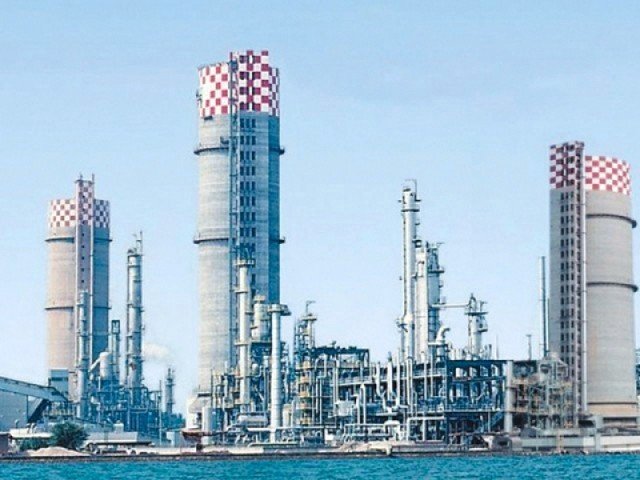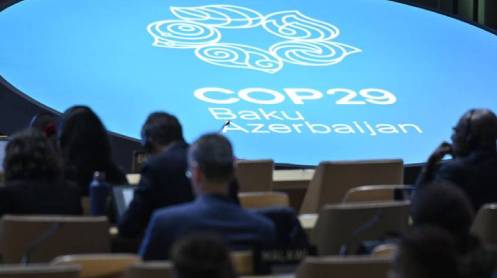The Economic Coordination Committee (ECC) of the Cabinet is all set to consider draft Arbitration Agreement (AA) between Karachi Electric (KE) and other public sector entities, as things are moving expeditiously after the visit of Prime Minister to Saudi Arabia.
Last Sunday, Minister for Energy, stated “Federal Government and KE have agreed upon principles to resolve longs standing disputes”. He referred to additional supply, payment procedure and subsidy disbursements but not to the Arbitration Agreement in spite of claims worth multi-billion rupees of Government parties for and against KE.
Sharing details, the sources close to Minster for Privatisation told Business Recorder that, in November 2016, KES Power applied to the Privatisation Division for grant of National Security Certificate (NSC) for transfer of its 66.4% shares in KE to Shanghai Electric Power Company Limited (SEP) under clause 5.3 (b) of the Share Purchase Agreement, which bounds KES Power to obtain certification from the Government of Pakistan (GoP) that the proposed transfer/transaction does not affect national security interests of Pakistan.
Since then, the matter has remained under discussion at various fora for resolution of outstanding issues, especially the payment of Karachi Electric’s payables/receivables with the government entities, which has been linked to the grant of NSC.
Due to difference of opinion amongst various stakeholders on the terms of an amicable way forward on payables/receivables of KE, the issue has remained unresolved till date. The issue of KE’s payables/receivables originates, according to sources, from the Implementation Agreements (IA) (to the extent of Tariff Differential Subsidy (TDS)) or subsidy order and defaulting strategic customer (KWSB) guarantee) of November 14, 2005 as amended on April 13, 2009, Gas Sale Agreements (GSA)/arrangements and Power Purchase Agreements (PPAs)/arrangements of SSGC & NTDC/CPPA with KE.
In a meeting held on November 04, 2019, the representatives of the relevant Ministries/Divisions considered arbitration as a viable option to settle the issue of outstanding payables/receivables of KE. In another meeting of the stakeholders held on February 24, 2020, it was decided that Privatisation Division will coordinate with the concerned parties for agreeing on a draft Arbitration Agreement for settlement of pending payables/receivables issue. Draft Terms of Reference (ToRs) for the proposed Arbitration Agreement were accordingly discussed and agreed by the concerned Government parties in the meeting held on June 29, 2020, however, KE dissented on the issues of seat of arbitration and reciprocity while the Sindh Government (for receivables from KWSB) showed reluctance to join the Arbitration proceedings. On September 10, 2020, an Inter-Ministerial Committee recommended alternate options to resolve these issues but the matter could not be resolved due to implications with respect to accepting the principle of reciprocity to settle outstanding payables/receivables of KE.
On January 26, 2021, Prime Minister Imran Khan directed Power and Petroleum Divisions to come up with possible settlement solutions of these issues.
After discussion with stakeholders, KE sent a letter to Power Division agreeing to withdraw from the earlier stance on international arbitration and reciprocity.
However, a subsequent draft Arbitration Agreement shared by KE had the principle of reciprocity for settlement of the claims of the parties built-in.
On February 15, 2021, the Prime Minister directed the Minister for Privatisation to come up with clear recommendations to resolve KE’s transaction issues.
The matter was accordingly again assigned the highest priority and negotiated on a day-to-day basis with KE and Government parties in active consultation with the then SAPM Petroleum, Nadeem Babar, Attorney General for Pakistan (AGP), Finance and Power Divisions.
In a meeting held on March 16, 2021, a general consensus was achieved on the terms of arbitration. In addition, it was discussed that in order to avoid recurrence of future circular debt of KE, Power Division may issue policy guidelines to Nepra under the Nepra Act 1997, after approval of the Cabinet, to allow addition of cost of funds in tariff.
The AGP was also requested to propose a name of a former Judge of the Supreme Court as the sole arbitrator, in consultation with counsels for KE and SSGCL.
As a major stakeholder, Power Division has participated in all the meetings on this subject. However, in March 2021, it raised several queries/objections on specific provisions of the draft Arbitration Agreement. Their views mainly relate to the inclusion of the principles of equity and fairness, cost of funds for determining compensation amount, lack of mechanism for adjustment between Government parties, non adjustment of KWSB payables, and inclusion of cost of funds in tariff for failure of GoP to pay TDS in time. In addition, Nepra has also given its input on the issue of inclusion of cost of funds in tariff for failure of GoP to pay TDS on time.
Privatisation Division has also pointed out that Attorney General for Pakistan and several legal professionals representing the stakeholders have examined the draft Arbitration Agreement. Comments from Law & Justice Division have also been obtained on the draft Arbitration Agreement.
Principles of equity and fairness have been added to the draft Agreement on the insistence of KE even though these are inbuilt in sections 73 & 74 of the Contract Act 1872 for determination of quantum of compensation to a party for loss or damage caused by breach of contract. As per terms of the agreement, the sole arbitrator will determine all the claims (along with compensation, if any) on the principles of law, contracts, equity and fairness. Before acting upon formal approval of the Cabinet, the proposed scheme of settlement will also be submitted before the Supreme Court in the pending case of KE and directions of Supreme Court, if any, may also be incorporated in the proposed scheme.
In a meeting of the Inter-Ministerial Committee held on March 24, 2021, it was recommended that the matter (along with the views of Power Division) may be placed before ECC of the Cabinet for deliberations and to recommend a further course of action to the Federal Cabinet.
Privatisation Division argued that in the present case, claims worth multi-billion rupees of Government parties for and against KE are involved, while decisions are also required on the queries/objections raised by the Power Division.
Privatisation Division has also claimed that it is not privy or party to transactions culminating in disputes of payables/ receivables between the parties and is mainly performing the role of a facilitator to resolve this issue by engaging the stakeholders.
It has been discussed in various meetings that infrastructure of KE requires massive investment for improved service delivery to its consumers and the current majority shareholders of KE may not be in a position to make such investments. Supreme Court of Pakistan has also taken notice of the grave situation being faced by the consumers of this utility. In such a scenario, an international investor of repute may be in a better position to make such investments in KEs infrastructure and, hence, it may be essential to resolve this long outstanding issue of payables/receivables through arbitration.
After explaining the entire history of dispute, Privatisation Division requested ECC to consider the following proposals and recommend a further course of action for approval of the Federal Cabinet: (i) draft Arbitration Agreement to settle the past payables and receivables of KE with Government parties; (ii) Secretaries of Power and Finance Divisions may sign the Arbitration Agreement on behalf of the President of Pakistan; (iii) policy guidelines may be issued by the Power Division to Nepra, under the Nepra Act 1997, to allow addition of cost of funds to the tariff of electricity distribution companies, including KE, in case the GoP fails to make payment of any agreed subsidy and additionally, if there was no plausible reason for such delay, Nepra may also advise the GoP to hold inquiry and fix responsibility for the delay in the payment of subsidy; and (iv) Attorney General may submit the draft Arbitration Agreement and future framework before the Supreme Court of Pakistan in pending case of KE and incorporation of directions of Supreme Court, if any, in the proposed scheme.
Once the proposals in summary are approved and implemented, Privatisation Division will initiate the case for issuance of the National Security Certificate (NSC) for the proposed transaction of transfer of shares of KE to SEP.
Privatisation Division has already agreed in principle on drafts of two other relevant documents which extinguish obligations of GoP to KES Power and contains restrictions on further transfer of KE shares by SEP or its intermediary Companies.





